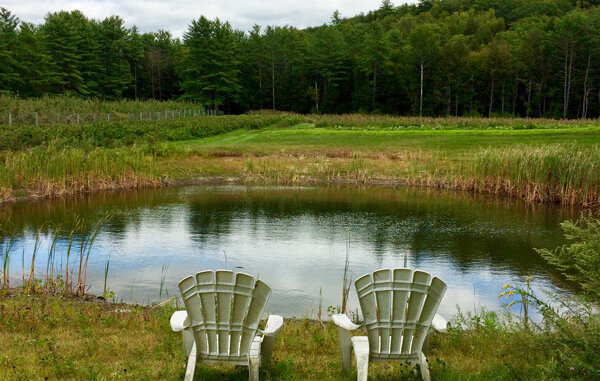Humankind has the ability to achieve sustainable development — to meet the needs of the present without compromising the ability of future generations to meet their own needs.

Definition of Sustainability
by Donella Meadows in her weekly newsletter 1995
For some months, I have owed an answer to one of you, who asked for a definition of the word I probably use more often here than any other—sustainability. It has become an international jargon word, with about as many meanings as there are people who use it. Those of us who have talked about sustainability for a long time have stopped defining it. We sometimes say that it’s like jazz, or quality, or democracy–you don’t know it by defining it, you know it by experiencing it, by grooving with it, by living it—or perhaps by mourning its absence. But anything you say in words isn’t Sustainability, it’s only Words. Those who Know do not speak, those who speak do not Know.
That’s a cop-out, of course. There’s a perfectly good official definition, which comes from the 1987 report of the International Commission on Environment and Development:
Humankind has the ability to achieve sustainable development—to meet the needs of the present without compromising the ability of future generations to meet their own needs.
This definition has two parts—meeting needs, and doing so in a way that preserves the natural, human, and societal resources from which needs are met. It’s important to remember that, because the public discussion too often splits between those who want to meet needs and those who want to protect the environment, as if doing one is incompatible with doing the other. The difference between traditional environmentalists and “sustainability folks” is the ability to keep the welfare of both humans and the environment in focus at the same time, and to insist on both.
In my own mind I supplement that official definition of sustainability with Herman Daly’s clear and undeniable explication of what it means in physical terms:
- Renewable resources shall not be used faster than they can regenerate.
- Pollution and wastes shall not be put into the environment faster than the environment can recycle them or render them harmless.
- Nonrenewable resources shall not be used faster than renewable substitutes (used sustainably) can be developed.By those conditions there’s not a nation, a company, a city, a farm, or a household on earth that is sustainable. Virtually every major fishery in the world violates condition 1. The world economy as a whole is violating condition 2 by putting out carbon dioxide 60-80% faster than the atmosphere can recycle it. But to make things worse, I would add two more sustainability conditions that I think are obvious.
- The human population and the physical capital plant have to be kept at levels low enough to allow the first 3 conditions to be met.
- The previous 4 conditions have to be met through processes that are democratic and equitable enough that people will stand for them.
Sustainability means all that to me and more, it means a complete vision of the world I want to work for and live in. It contains components of spirituality, of community, of decentralization, of a complete rethinking of the ways we use our time, define our jobs, and bestow power upon governments and corporations. “Sustainability” is a terribly inadequate word for what I mean. Any word of six syllables is way too long to organize a popular movement around and at the same time way too short to encompass a whole vision. And too many people hear it as “sustaining” the world we have now, whereas I really mean fomenting a revolution.

